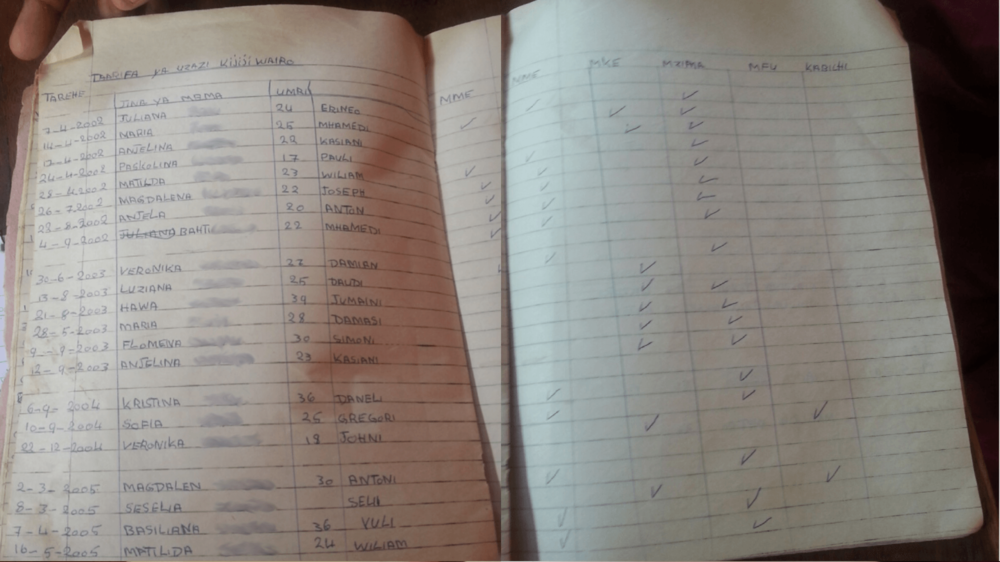Recently published: "From Traditional Birth Attendants to Community Health Workers: The Politics of Maternal Health in Tanzania" (Medizinethnologie-Blog)
A traditional birth attendant’s records of the deliveries she assisted from 2002 to 2006 in Wairo village, Tanzania (Photo by Anitha Tingira 2015)
Anitha Tingira
News vom 22.11.2016
Efforts to address maternal health have been part of global health projects for decades, and have always mirrored the shifting political and economic interests of international development. The ongoing construction of maternal health at the global level reflects the way in which shifting solutions to problems related to low income countries are designed according to what is considered the ‘best’ solution at a particular point in time. The fictive example of Mrs. X’s maternal death, as presented by the World Health Organization (WHO) in 1988 and which was adapted and retold in 2012 with a few changes, illustrates well how maternal mortality is constructed and solutions are designed according to fluctuating Western-global norms and ideas (see Video 1 below). The policy implications of this homogenized view of maternal mortality is the adoption of biomedical rationality as an intervention into traditional society, culture and economy, which are perceived as barriers to the improvement of maternal health. This kind of thinking initiated the creation of the profession of traditional birth attendants (TBAs) in the early 1980s, which then fully took off as a result of the WHO’s Safe Motherhood Initiative in 1987 (Langwick 2011: 121-125). [mehr]



